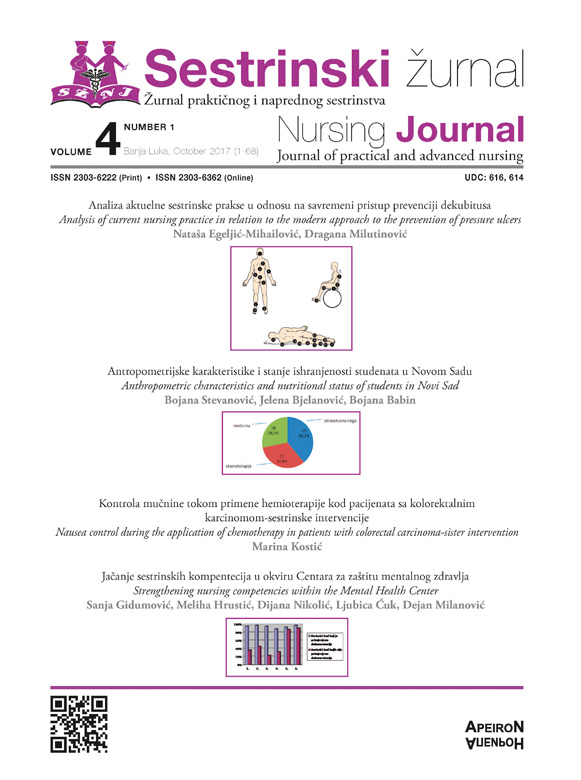Anthropometric characteristics and nutritional status of students in Novi Sad // Antropometrijske karakteristike i stanje ishranjenosti studenata u Novom Sadu
DOI:
https://doi.org/10.7251/SEZ0117030SAbstract
Nutrition is the satisfaction of the needs of the organism for energy, nutrients and protective substances. A well-balanced diet is a prerequisite for good health and protection against illness. The aim of the research is to determine the anthropometric characteristics and the state of nutrition in students of different directions and ages; and make a comparison of the results obtained with respect to gender, age, and study direction.
Anthropometric measurements were performed from May to June of 2013. The sample was made by students of the Faculty of Medicine in Novi Sad, age from 20 to 36 years of age, chosen by the random selection method. The research involved 64 students stratified by gender, years of life and study direction. The first degree of malnutrition has 13 respondents. Of the total number of subjects, 41 subjects were physiologically nourished. BMI values in the category of pre-hospitality have 8 respondents. Male males have higher average values of body mass index compared to females. Obesity occurs (3.28%) in males. The highest average values of the Body Mass Index have students in the age category. The statistically significant difference is between the mean values of the body mass index versus gender, where men have higher values. Poisoned subjects have 13, and most of them are physiologically nourished. Advocacy is more common in men. Women have a higher average skin thickness compared to men, which is not statistically significant compared to age and study. The highest average value of the measure of the volume of the waist is recorded by persons of male sex, but it is not statistically significant difference in relation to age and study direction.

